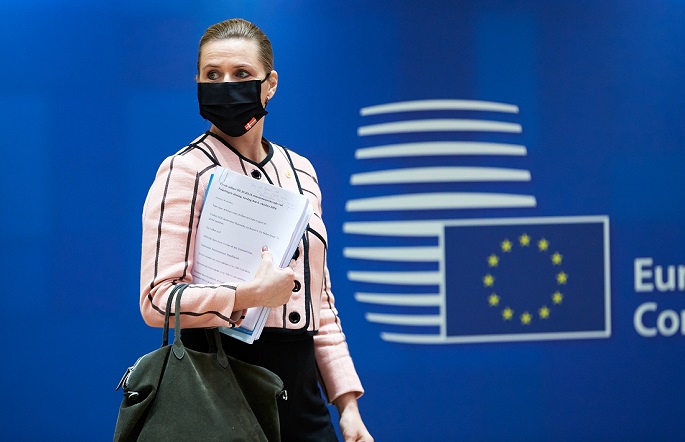Danish PM optimistic of no more major COVID-19 lockdowns
Published : 24 Aug 2021, 02:42
Danish Prime Minister Mette Frederiksen conveyed optimism that major society lockdown was a thing of the past during a press conference on Monday updating the public on the country's COVID-19 situation, reported Xinhua.
"We have clear expectation that we can avoid major national shutdowns in the future. Simply because we now have the superweapon over them all, namely the vaccines," said Frederiksen.
Denmark's Statens Serum Institut (SSI) on Monday reported that 4,372,404 people, or 74.7 percent of the population, have started the process of vaccination. Of these, 4,032,000, or 68.9 percent of the population, are now fully vaccinated.
Denmark has already experienced two major lockdowns since the pandemic first hit the country in early 2020.
Despite more than four million people having taken the vaccine, Frederiksen addressed the reticence of those that had not taken the vaccine, particularly many under the age of forties.
According to the prime minister, the group now accounts for 51 percent of all hospitalizations due to COVID-19, while before the new year of 2021, the figure was only 13 percent.
Also speaking at the press conference, Health Minister Magnus Heunicke took the opportunity to reemphasize the PM's concerns by pointing out that 80 percent of those hospitalized had not been fully vaccinated.
Heunicke also confirmed that the authorities had begun to consider a third vaccination for all Danes, but that dates had yet to be decided.
Also on Monday, the Danish government pledged 800 million Danish kroner (126.2 million U.S. dollars) in state support to help develop a new COVID-19 vaccine.
The funding for the ABNCoV2 vaccine, developed by Danish company Bavarian Nordic, was confirmed by Heunicke. Phase 2 trials of the new vaccine began on Monday, and the vaccine is expected to be approved early next year.


